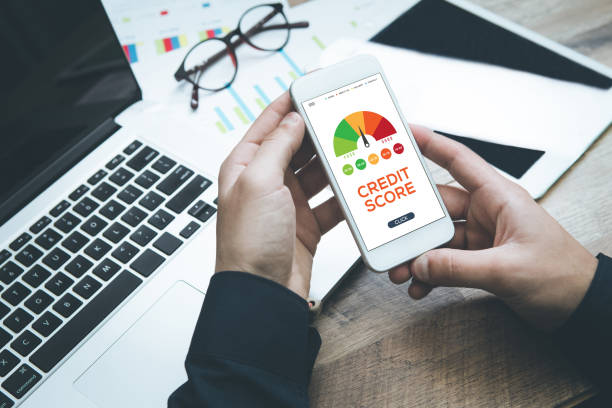Simply said, opening a checking account has very little to no impact on your credit score. Although there are a few exceptions to this rule, they are infrequent and usually don’t have a significant effect. How does opening a checking account affect credit score? Here are some impact.
Your credit score is meant to keep track of how you manage your bills, including loan repayment, mortgage payment, and so forth. As a result, it often only involves your checking account if it leads to debt of some kind.
Can Checking Account Openings Impact Credit Score?
Your credit score is typically unaffected by opening a checking account, making deposits and withdrawals, and other routine actions. There are a few exceptions, though.
The bank conducts a thorough investigation.
When you open an account, your financial institution could occasionally do a credit check. These, however, are frequently “soft” queries that have no impact on your credit score. Rarely, they might conduct a difficult enquiry, temporarily lowering your score by a few points. If there is any effect, it is minimal.
Enrollment in overdraft protection
Your credit union or bank could do a hard inquiry when you apply for overdraft protection. This is due to the fact that overdraft protection frequently functions as a line of credit (much like a credit card), which may then show up on your credit report. It might have an impact on your credit, depending on your banking institution, particularly if you frequently overdraw your account.
Not paying overdraft fees
Your credit score could be impacted if you overdraw your checking account without overdraft protection. Your financial institution may turn the debt on to a collections agency, which may damage your credit, if you don’t swiftly repay the money or pay off your overdraft costs.
Closing a bank account with a loss
Normally, opening and closing a checking account has no impact on your credit. Your banking institution could transfer the account to a collections agency if you close an account with a negative balance and fail to settle it afterwards. In that case, it’s possible that the debt will be reported to the credit bureaus and have an impact on your score.
Checking Accounts and Chex Systems
Even though your banking behaviour won’t often affect your credit score, ChexSystems, a consumer reporting service, nonetheless keeps track of it.
Your daily withdrawals and deposits won’t often be listed on your ChexSystems record; only significant transactions will. Among the negative details that could be seen on your ChexSystems report are:
Bounced checks and overdraft fees
You may receive a bad grade on your ChexSystems report if you repeatedly overdraw your account or bounce checks. Nonetheless, it’s unlikely that one mistake will have an influence.
Abuse of ATMs and debit cards
It’s likely that fraudulent activities involving your debit card or an ATM will result in a poor rating.
Several applications for accounts
Although opening a new checking account won’t always have a bad effect, if you do it repeatedly, it might.
Regular check or debit card loss
If you accidentally lose your debit card or chequebook once, it will typically be accepted as an honest error. But, if you did this regularly, you would be seen as a high-risk candidate and it might be considered fraud.
Suspicion of fraud
Your former accounts may be reported if activity there suggests possible fraud or identity theft.
Negative balances owed
Your ChexSystems score can suffer from overdrafts, negative balances, and other issues, but only if you don’t take immediate action to fix them.
Closed accounts
If banks have previously cancelled your account due to suspected fraud, this will probably be noted on your ChexSystems record and result in a decrease in your score. Also, if your account is cancelled due to writing too many bad checks, your score might suffer.
Keeping Your Credit Score and ChexSystems Record in Good Standing
Healthy banking and debt management practises must be maintained in order to maintain a good credit score and clean ChexSystems record. The following are a few strategies to help you keep bad things off your record:
Remit fees and bills promptly
Late bill payments, unpaid debt, and other factors can all harm your credit score. It might also show up on your ChexSystems account if you have issues with things like unpaid overdraft fees and negative checking account balances. You can prevent most issues with these two accounts by making sure you’re entirely on top of these concerns.
Correct any mistakes on your report
Your credit report may occasionally contain mistakes or unfavourable information, and the same is true of your ChexSystems account. They can occasionally be disputed if they are only minor mistakes. Others, like frequent overdraft costs from a time of unemployment, may be justified.
ChexSystems allows you to enter and leave an explanation with these kinds of problems in the latter scenario. The total word count for explanations is 100 words.
Don’t open new accounts too frequently
Too many credit line, checking account, and similar account openings can lead to repeated hard pulls on your credit report, but more importantly, they might be an indication of dangerous or fraudulent behaviour. Avoiding this will only benefit your records and enhance your credibility as a checking account applicant.
The first step to achieving financial success is opening a checking account
Despite the potential negative effects opening and maintaining a checking account may have on your credit score, you should still have one. Checking accounts are an essential tool for managing your finances and creating a budget both now and in the future.

